Her Unlikely Superpower: Smelling Parkinson’s Disease
For some special people, they have a superpower lying in wait, lingering under the radar until the right moment presents itself. In this particular story, Joy Milne had no idea that she possessed a superpower at all. And why would she?
She was a normal woman living in Scotland, doing what normal people do. She lived a quiet life, worked a regular job, and started a family like any other. But Joy had a skill that came to separate her from nearly everyone else in the world. And for most of her life, she was completely unaware of it.
Her Hidden Superpower
Joy, now 72, would never have guessed that she was harboring an equally amazing and terrifying biological gift – one that scientists would eventually want to study. You see, Joy can smell Parkinson’s disease in humans. Yup, it’s true.
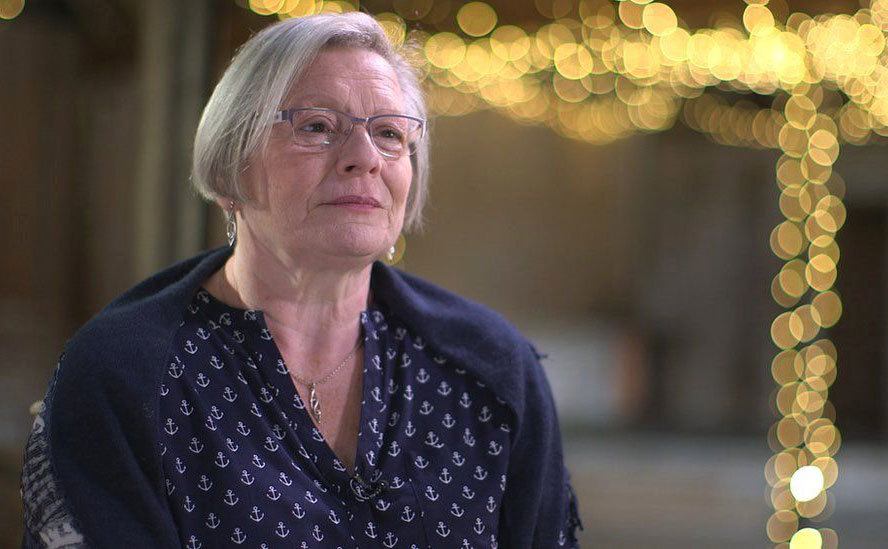
And she might have never discovered her superpower, either, if it wasn’t for her husband, Les Milne. Joy and Les met in high school when he was a 17-year-old swimmer, and she was a 16-year-old new transfer student. Funnily enough, it was his smell that she remembers most about their first encounter.
It Was His Smell That Made Him Stand Out
Joy remembers going to a dance with Les, and while dancing together she was struck by his smell… in a good way. “He had a lovely, male musk smell. He really did,” she recalled. It wasn’t just his smell; everything about him appealed to her.
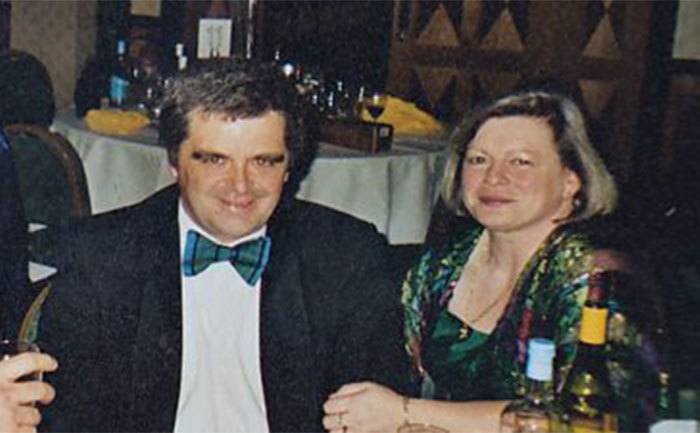
He was a thoughtful guy, generally quiet but with a dark sense of humor. From high school, they went on to college together. After graduation, they got married and did what young married couples do: they started a family. First, they started their careers.
They Were the Epitome of “Couple Goals”
Les became a doctor while Joy became a nurse. They went on to have three boys. As a couple, they got along well; everything was easy together. They were one of those couples who rarely fought (can you imagine?). Talk about couple goals…
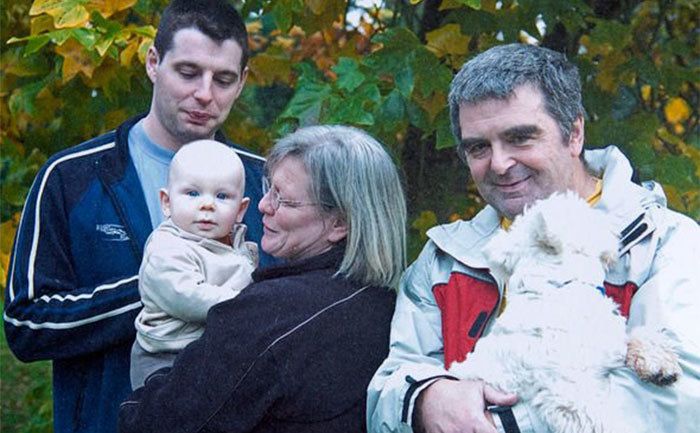
“We disagreed about things now and again, but we didn’t fight, fight.” Living life with “her Les,” as she still calls him, was everything Joy had hoped for in life. She was joyous (if I may). But as the Buddhists say, nothing is permanent.
Suddenly, He Had a Different Smell
It was a matter of time until their married life would turn from blissful to worrisome. And it happened one day about 10 years into their marriage, when Les was 31. He returned home from work, and, instantly, Joy noticed something was off.
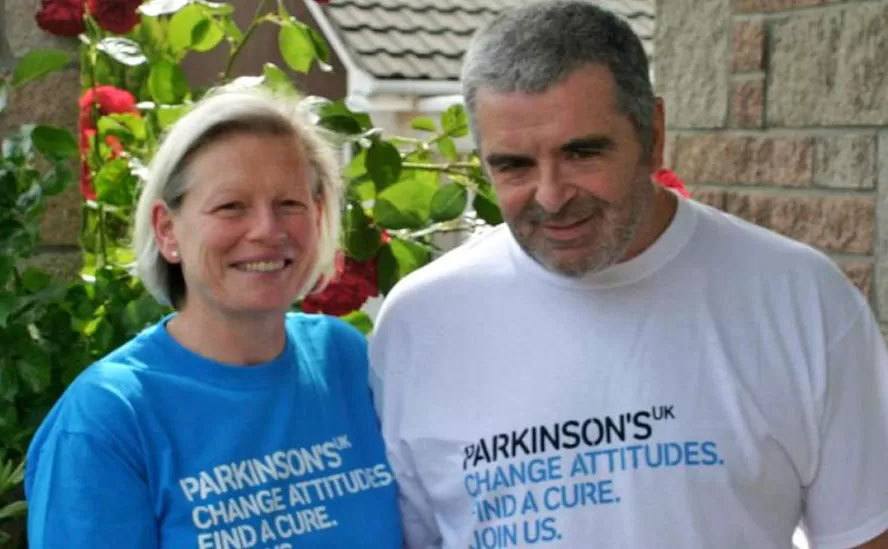
She could tell right away that he smelled different. “His lovely, male musk smell had got this overpowering sort of nasty yeast smell,” she said. Naturally, she thought of logical reasons for the new, disturbing scent. It was probably the hospital, she figured, that rubbed off on him.
The Showers Weren’t Helping
She encouraged him to take a shower and wash the hospital smell off from his clothes. But his bathing didn’t help. In fact, nothing did. Over the coming weeks and months, Les’s new smell just seemed to grow stronger.

It got unpleasant, and so did Joy. She would nag him, saying things like, “Look, you know, you’re not washing enough.” Poor Les. He was doing the best he could, but that darn smell just wouldn’t go away. Eventually, he got mad whenever she told him to wash up.
She Was the Only One Who Could Smell It
The oddest thing about it was that Les himself couldn’t smell it, which he kept pointing out. And neither could anyone else for that matter. The problem was seemingly Joy’s nose. “He just would stomp off in a huff and say, ‘Oh, stop going on about that!’ I had to just let it go and put up with it,” Joy explained.
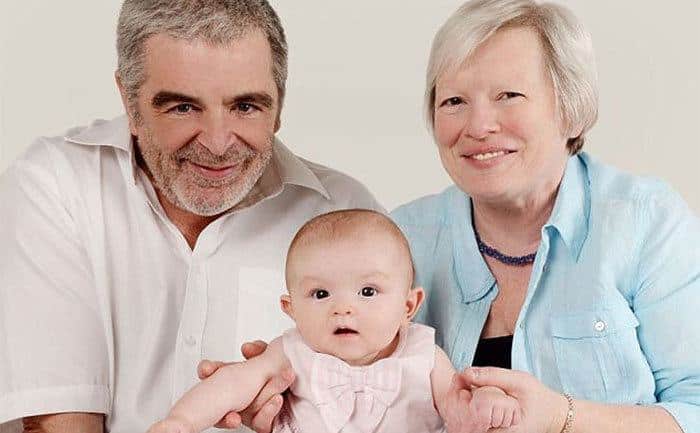
The months turned into years and the smell – that darn smell – was always lingering. But with time, Joy started noticing other things. It was no longer just his scent that changed.
Somebody That She Used to Know
“It was his personality, his character,” Joy said. “He began to change. He was moodier. He wasn’t as tolerant.” The once harmonious couple was now bickering, more and more. All of the qualities she loved about him – his thoughtfulness, patience, dignity — were starting to fade away.

By the time he reached his early 40s, she started to see him as a totally different person. He simply was no longer the man she once knew. Then, one night, out of nowhere, Joy woke up to Less attacking her.
The Night He Attacked Her
“He was sort of screaming and shaking me and, you know, but he was totally oblivious of it,” she said of that strange night. It was obvious that Les was having a nightmare, but the incident made her decide to take action.

She put her foot down; she was going to figure this out. Something was clearly off about her husband, and she needed to get to the bottom of it. Initially, she was worried that he had a brain tumor and they needed to get him checked out immediately.
The Diagnosis
At the doctor’s office, Joy vividly remembers what it was like to sit next to Les while hearing the diagnosis. Her doctor told her 45-year-old husband that he had Parkinson’s disease. Parkinson’s… at 45? Was that even possible? Yes, yes, it is.

It was definitely a hard pill to swallow, but one that had to be accepted and dealt with. There was no sugarcoating or denying that Les had been diagnosed with an incurable degenerative disease. The husband and wife had no choice but to move forward.
The Struggle Was Real
Over the next two decades, Joy and Les tried to make the best of their situation. But obviously, it was very difficult. He experienced loss of movement and, with it, loss of work. Slowly, their world narrowed in on them more and more.

All the while, though, they kept on keeping on. They struggled through for the longest time, even to this day. But about nine years ago, the couple decided to attend a support group for those suffering from Parkinson’s. What did they have to lose, right?
There’s That Smell Again!
As soon as they showed up to the first group meeting, Joy was taken aback by that familiar smell. “We were late. A lot of people were there. And I walked into the room, and I thought, ‘SMELL!’”
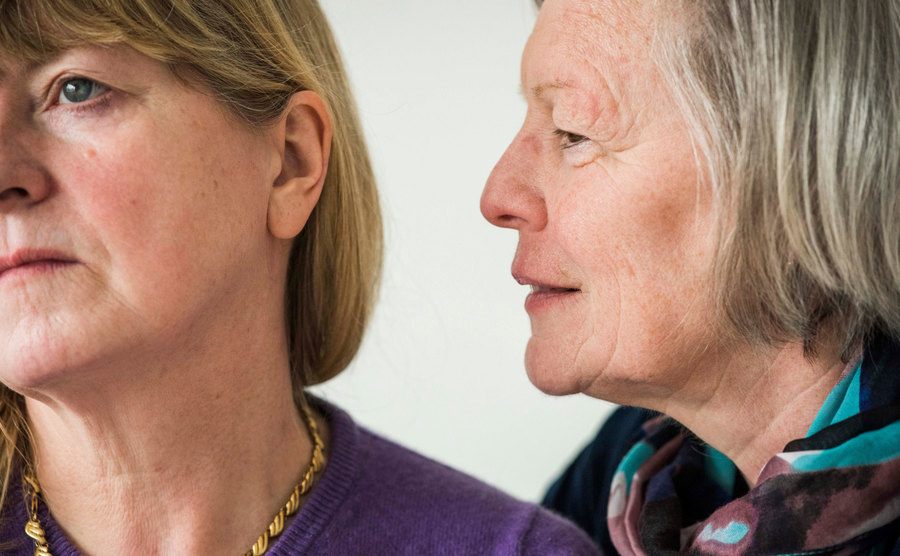
She realized that the other people in the room – everyone that she knew for sure had Parkinson’s – had that same greasy, moldy smell that Les had. She also noticed that some people’s scents were stronger than others. It varied. It was the most bizarre of revelations. She wondered, did Parkinson’s have a smell?
She Had to Tell Him About Her Discovery
That day, as they drove home from the meeting, Joy was in a daze. She kept pondering the notion that she was able to smell the very disease her husband and all those people had. It was, after all, a very distinct odor.
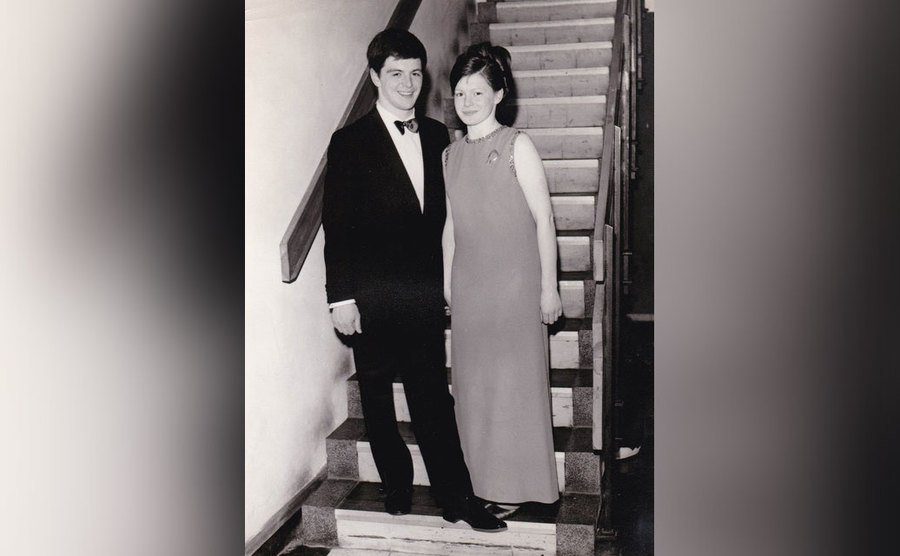
By the time they got home, she knew she had to tell her husband about her discovery. She remembers that when she told him about the discovery, Les’s eyes went wide. “He’s a doctor — we both understood the significance. Immediately,” Joy said.
Her Predictive Powers Could Mean Big Things
Joy smelled the disease on Les more than a decade before his symptoms got to the point where they had to seek medical help. That meant that Joy has some predictive “power” so to speak. This could also mean big things for science and medicine.
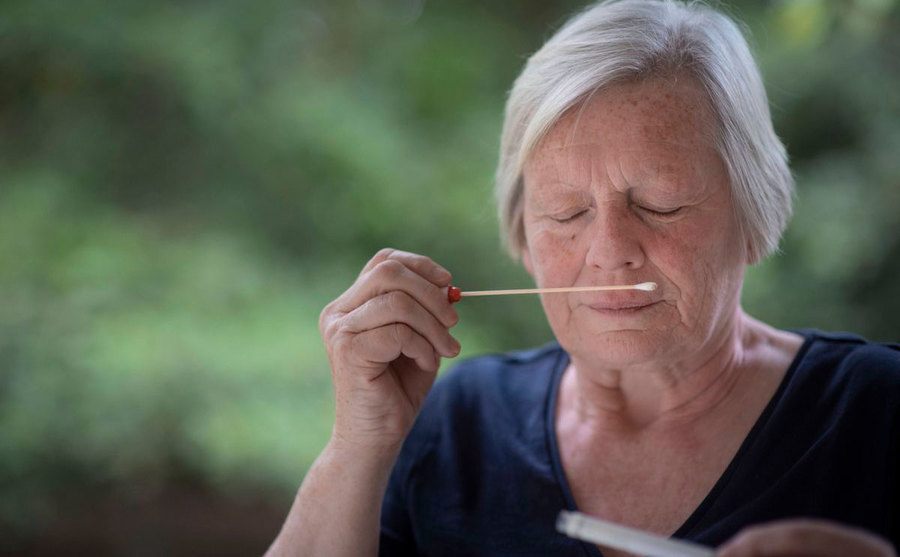
If Joy could predict Parkinson’s before the well-known symptoms start to show, like the shaking and the sleep disruption, then maybe she could work with researchers. They could study her and possibly make a significant breakthrough in the research and treatment of the disease.
An Odor? No Way
The couple instinctively knew that they had to get this information in the right hands – to the right scientist. They paid a visit to a Parkinson’s researcher at the University of Edinburgh named Tilo Kunath. At first, surprisingly, he told them he wasn’t interested.
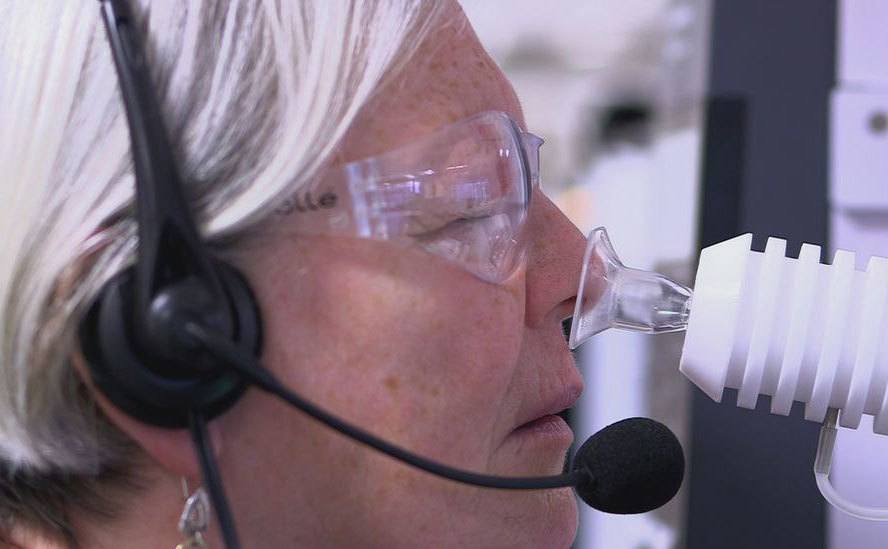
“I just dismissed it, I have to say. It just didn’t seem possible,” Kunath later admitted. You can’t blame the scientist, either. “Why should Parkinson’s have an odor? You wouldn’t normally think neurodegenerative conditions such as Parkinson’s or Alzheimer’s would have an odor.”
If Dogs Can, Why Not Humans?
A number of months passed, and Kunath started to hear about research that showed that dogs could smell cancer. He instantly thought about Joy – that woman who claimed she could smell Parkinson’s.
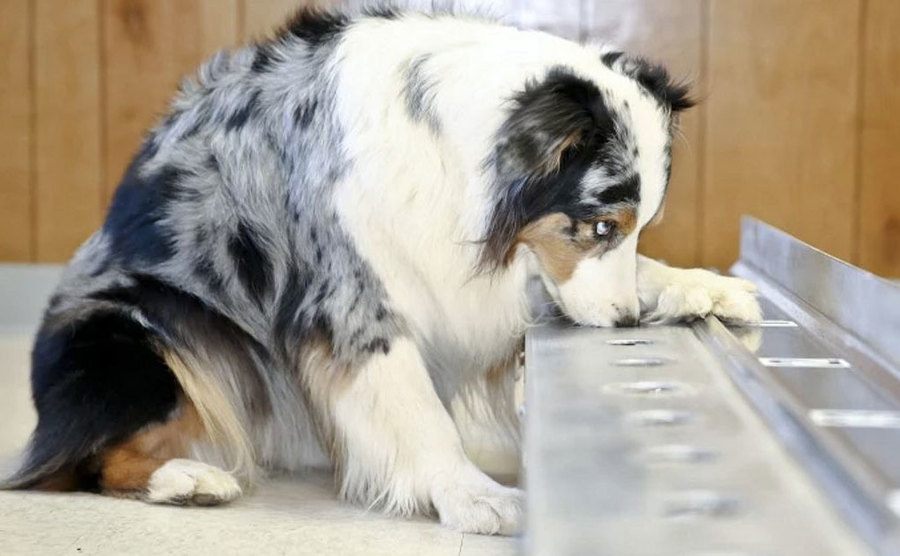
This now sparked his interest; if dogs could smell disease, then maybe humans could too. So, he tracked her down and asked her to come back. This time, they met in his lab for him to conduct a special test he devised himself. He wanted to steer an experiment that would check if Joy was the real deal.
The T-Shirt Experiment
The experiment was pretty simple. Kunath had one group of people with Parkinson’s participate, while he got another group consisting of people who didn’t have Parkinson’s. Both groups took home white T-shirts to wear overnight and were asked to return them the next day.
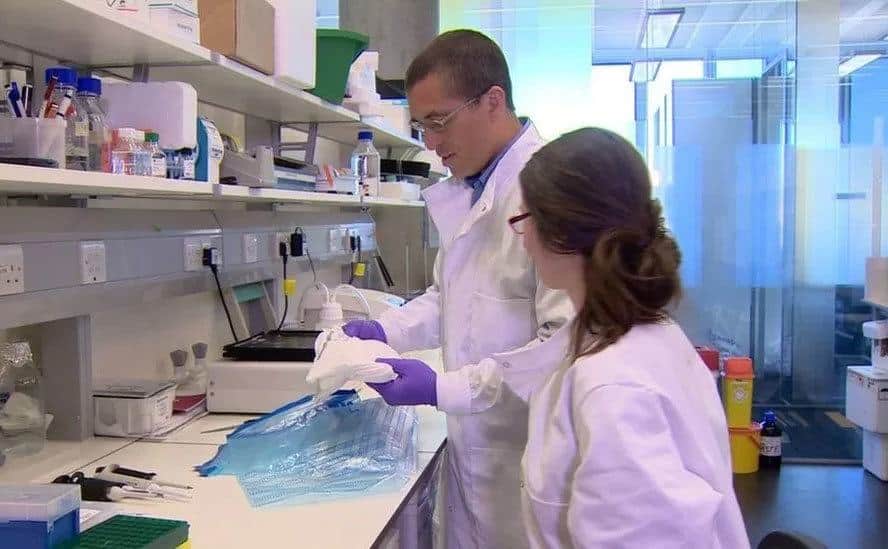
Kunath gave the shirts to Joy to smell. Of course, it was carefully planned as science experiments are. “They were all given randomized numbers and put in a box, and then she was asked to take each one out and give it a score,” Kunath explained.
She Was Incredibly Accurate
The score was so that they could (hopefully) decipher whether the person who wore the shirt was at an early stage of Parkinson’s, in a late stage, or somewhere in between. There were also those who didn’t have the disease (the control group).
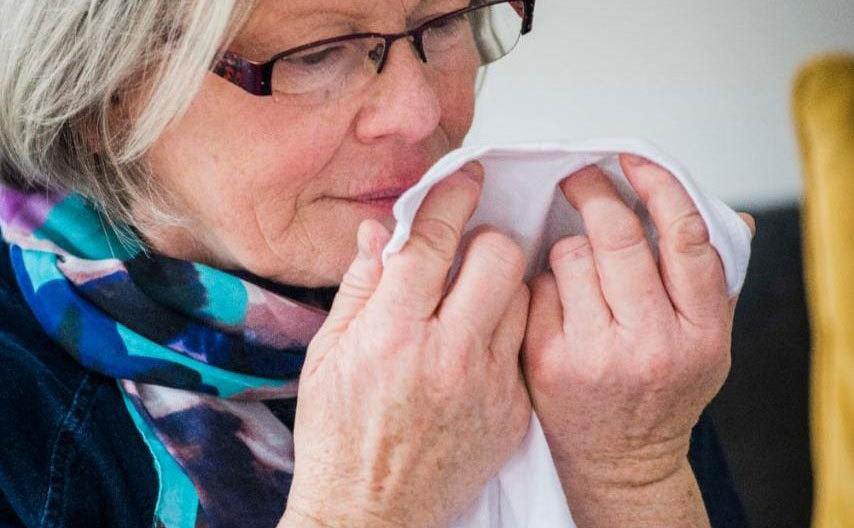
As it turns out, Joy was consistently on the mark. “She was incredibly accurate,” Kunath stated. Of all the samples, she made just one mistake: she identified a man in the control group as having the disease. But time would show that her mistake wasn’t a mistake at all.
It Wasn’t a Mistake at All
Many months later, Kunath got a visit from that man in the experiment. He approached the researcher at an event and told him, “You’re going to have to put me in the Parkinson’s pile because I’ve just been diagnosed.”
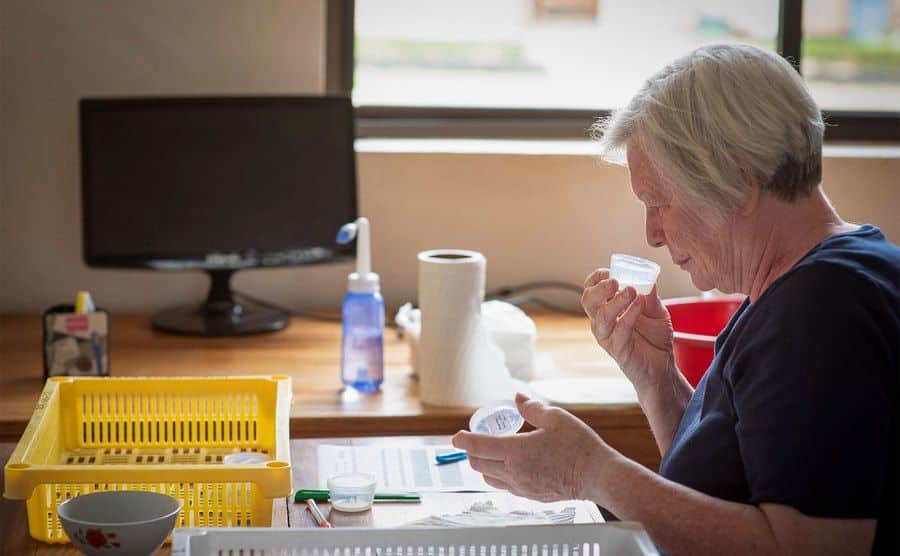
It was official: Joy could sense who had Parkinson’s, even in those who were far from getting diagnosed! It was incredible. Not only did she smell the disease, but she even smelled it in the absence of its typical medical presentation.
Joy, the Super Smeller
In March 2019, Kunath and fellow scientists published their work on this case in ACS Central Science with Joy as a co-author. Thanks to the experiments, they were able to study specific compounds that may contribute to the odor that Joy was smelling.

Joy’s super smelling abilities opened up a new area of research, Kunath says. A second, larger study was conducted, and they found 10 compounds linked to Parkinson’s. The hope is to diagnose Parkinson’s from skin-based biomarkers. The ultimate goal is to develop a new tool to detect Parkinson’s early.
She Can Smell Other Diseases Too
Her superpower is so unusual that scientists from around the world have started working with her. It turns out that Joy can identify other illnesses, too, like tuberculosis, Alzheimer’s disease, cancer and diabetes.
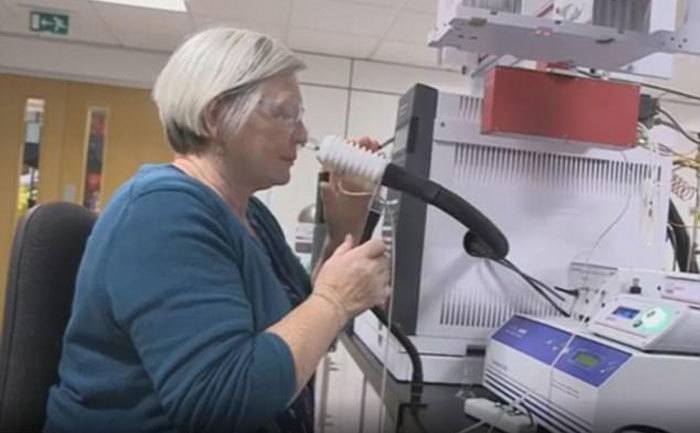
How has this changed her marriage? Well, unfortunately Les died not long after. But Joy says that with the discovery of her superhero nose, Les had a eureka moment. He wanted to offer more to science. He wanted the two of them to get very specific and document everything, before time ran out.
His Dying Wish
“We had to write down everything that had happened, so that medicine would understand what was happening to people with Parkinson’s,” Joy said. During the last six weeks of his life, the couple sat for daily writing sessions.

“They would only last 35 to 40 minutes at a time, but the last six weeks were completely different,” she recalled. “We spent time each day discussing what happened to us over the last 20-odd years.” These sessions happened to free Les from his dread of talking about the disease.
She Kept Her Promise
He had always shied away from talking about it; the disease was so existentially threatening to him that he just shoved it under the rug. However, with these discussions – with their new contribution to science and medicine – Les felt open to acknowledge and discuss it.

Joy said that the research about her nose was actually the last thing they ever spoke about. “You won’t let this go — you will do it, won’t you? You promise?” he asked her. A few hours later, he died. Joy kept her promise. “I’ve done it. I’ve kept my promise.”
A Blessing and a Curse
Not all superpowers are all positive. For Joy, her nose is being studied and praised. But it’s also been an absolute nuisance in her day-to-day life. Shopping, for one, can be something of a nightmare. “I have to go shopping very early or very late because of people’s perfumes, I can’t go into the chemical aisle in the supermarket.”
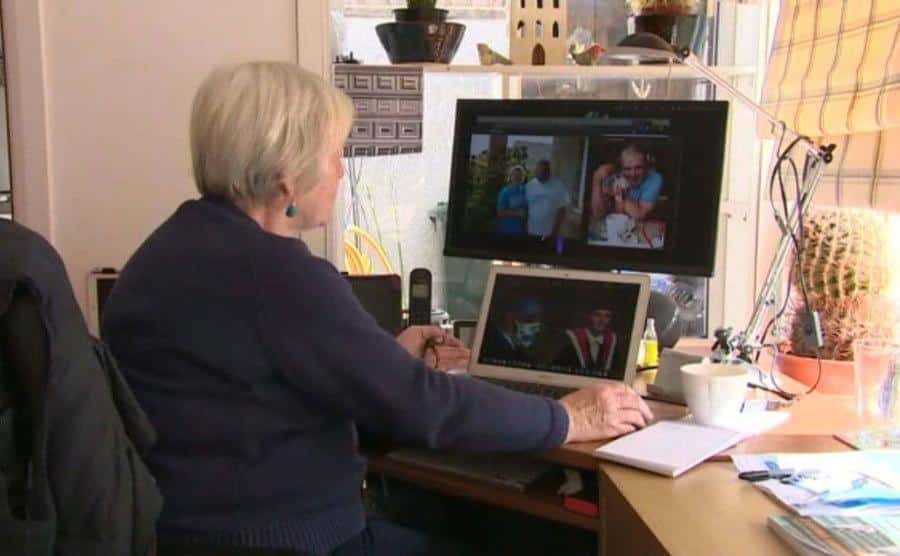
“So, yes, a curse sometimes,” she related. But, on the other hand, she pointed out that she’s been to Tanzania, for example, and has done research on TB and cancer in America.
Excuse Me Sir, I Can Smell Your Disease
“It is a curse and a benefit,” she summarized. Another issue she has with her nose is that she finds herself smelling people whom she knows have Parkinson’s, whether it’s in the supermarket or just walking down the street.

Naturally, she has the urge to tell them – warn them. But she was told by medical ethicists that she can’t do such a thing. “Which GP would accept a man or a woman walking in saying ‘the woman who smells Parkinson’s has told me I have it’? Maybe in the future but not now.”
The Dog Who Smelled Cancer
Joy’s superhuman nose happens to be extremely rare, but in the animal world, there have been some known cases where dogs have sniffed out their owners’ diseases. Take this story of one woman whose dog sniffed out her ovarian cancer not once but four times.

In 2013, Stephanie Herfel moved to Wisconsin from California and not long after, she noticed that she was gaining weight at an alarming rate. Her diet and exercise had stayed the same, yet she put on an extra 60 pounds. Out of nowhere.
They Said It Was a Benign Cyst
Then, she started to experience stomach pains that doubled her over, and with that she got herself to an emergency room. “It was so bad that my yoga pants even hurt,” Herfel, 53, said. After getting tests done, she was told that she had an ovarian cyst.

Doctors called it a benign cyst and prescribed pain medication. The truth is, it helped her; she started feeling better. Months later, she went on vacation, but when she came back home, something changed. Her dog was acting all weird.
Was the Dog Crying?
Her Husky, Sierra, wasn’t acting like her normal self. “Sierra put her nose on my belly and pushed very intently, and I just thought she missed me,” Herfel said. “On the third time, I called her on it.” Sierra then hid somewhere. It took Herfel an hour to find her.
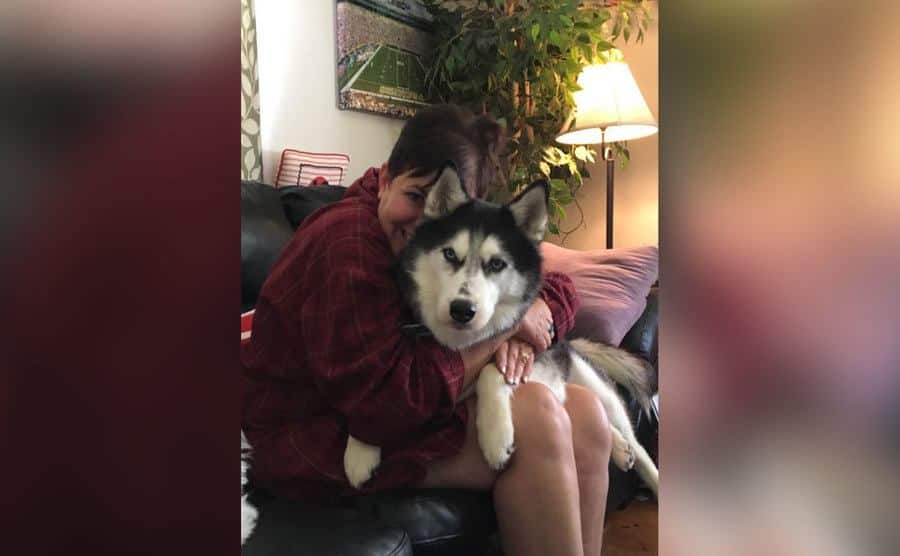
The dog was curled up into a tiny ball with her tail peeking out. Herfel knew something was wrong and started to worry. “They say dogs don’t cry,” she said, but Sierra sure looked like she had been crying.
Thanks to Sierra, She Got a Second Opinion
“I don’t know if it was fear or what, but the fur all around her eyes was just soaking wet and she had the biggest eyebrow cringe I’ve ever seen.” She could see that her dog was trying to tell her something – that something was wrong.
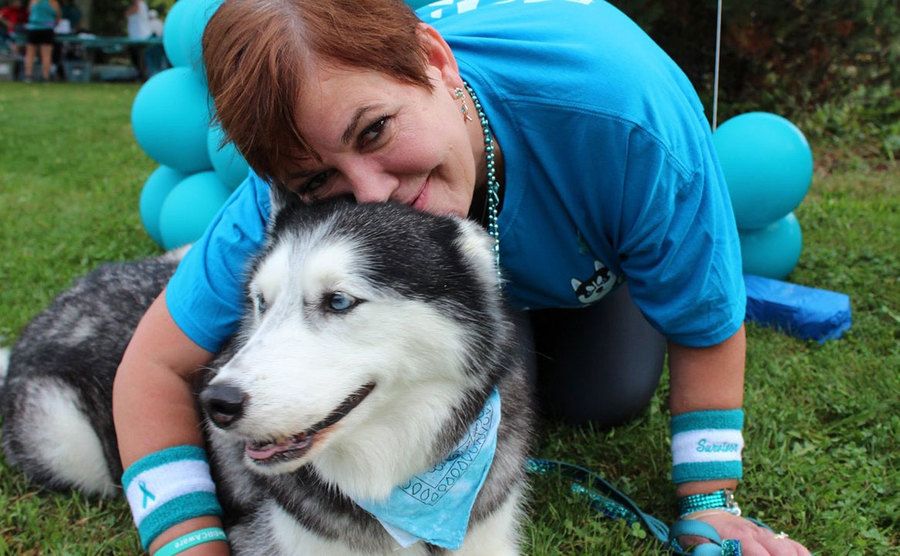
Herfel took it seriously and made an appointment with a gynecologist for a second opinion about her “benign” cyst. A month later, the results were in: she had stage 3 ovarian cancer. This was very serious, as this type of cancer has been referred to as the “silent killer.”
The Silent Killer
Why a silent killer? Because women with ovarian cancer often don’t have symptoms, or they mimic other illnesses. If you’re curious as to the symptoms, they include abdominal bloating or swelling, feeling full after eating, having to urinate frequently, back pain, pain during sex, and unexplained bleeding.

Getting the diagnosis made Herfel feel as though Sierra saved her life. The truth is, without her dog’s strange behavior, she wouldn’t have felt the urge to check it out. Despite the feeling that her doctors might laugh, she still told her oncologist that her dog had discovered the cancer.
They Said She Was Cancer-Free
“I was strangely impressed with him, he was very engaging,” she said of her doctor, noting that he even looked for papers about it. He later told Herfel that he looked into it. “It’s not breed specific, but if dogs can pick up the sense, they are 98% accurate.”
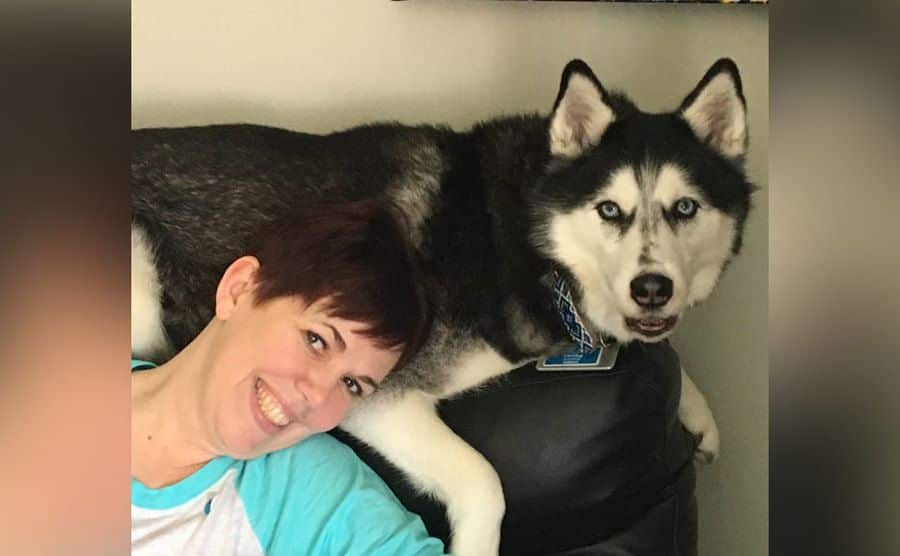
Herfel’s treatment included removing the tumor, which required a 10-hour surgery. Afterward, she was told she was cancer-free. But it looks like this was another mistake on the doctors’ parts (yes, they do make mistakes… often).
Her Dog Knew Better
18 months after her surgery, Herfel went away on vacation again. And again, once she came back home, Sierra was acting the same way she had the first time –nudging Herfel’s stomach, hiding and curling up into a ball.
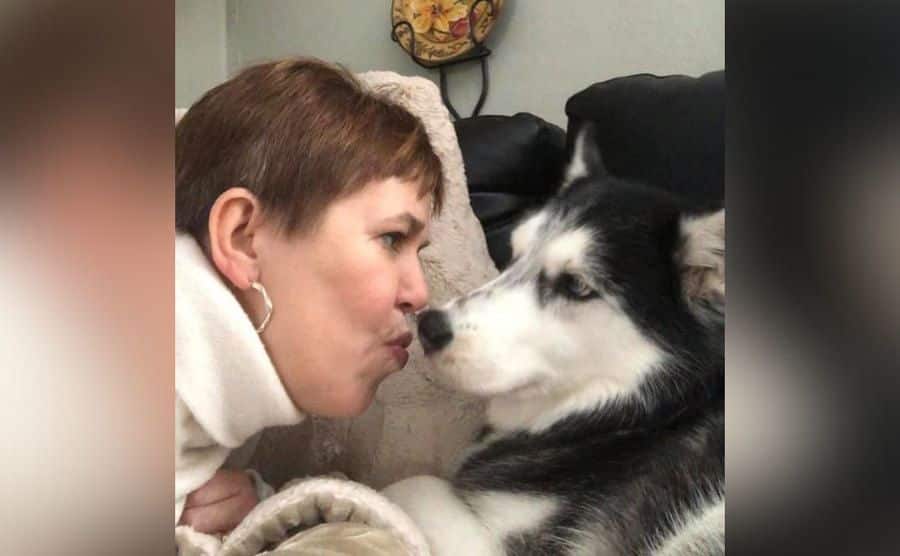
It was worrying, of course, considering she was told she was cancer-free. “Everyone I was there with just said, ‘You know it’s probably a new place,’” she explained. “But I knew in my gut it was not nothing.” She trusted her dog fully.
Round Two
Herfel went to get a CT scan, which revealed that the cancer had spread to her liver. Herfel would never have expected that her dog would continue to detect her cancer and save her life.
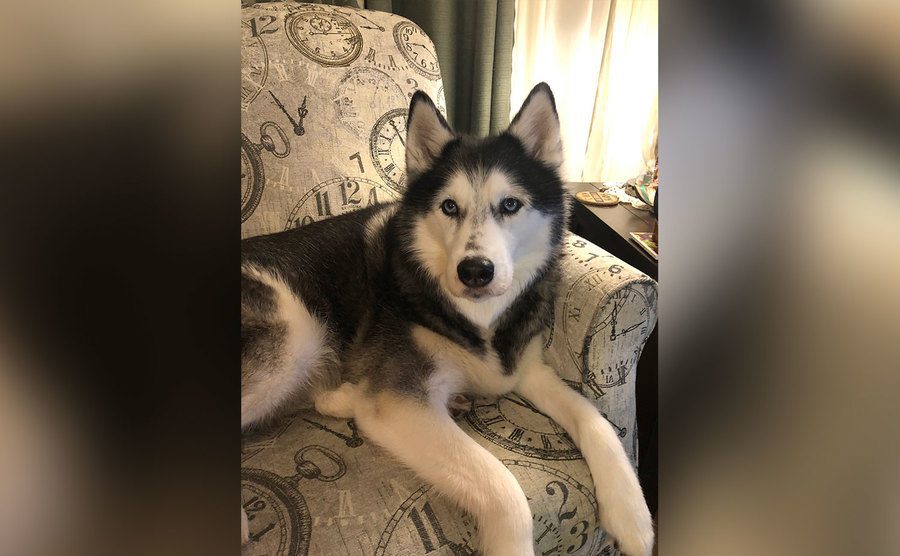
“She just changed from this really sweet pet to one that is a life-saving member of the family that is a little like a human,” Herfel shared. Herfel underwent another treatment and went on with her life as usual, enjoying her dog-owner bond with Sierra. But the saga wasn’t over…
Round Three
Come March 2019, Sierra did it again – the whole thing – and, by now, Herfel knew not to ignore her super dog. This time, she got a got a PET scan and it was confirmed: she had recurring ovarian cancer, again at stage 3.
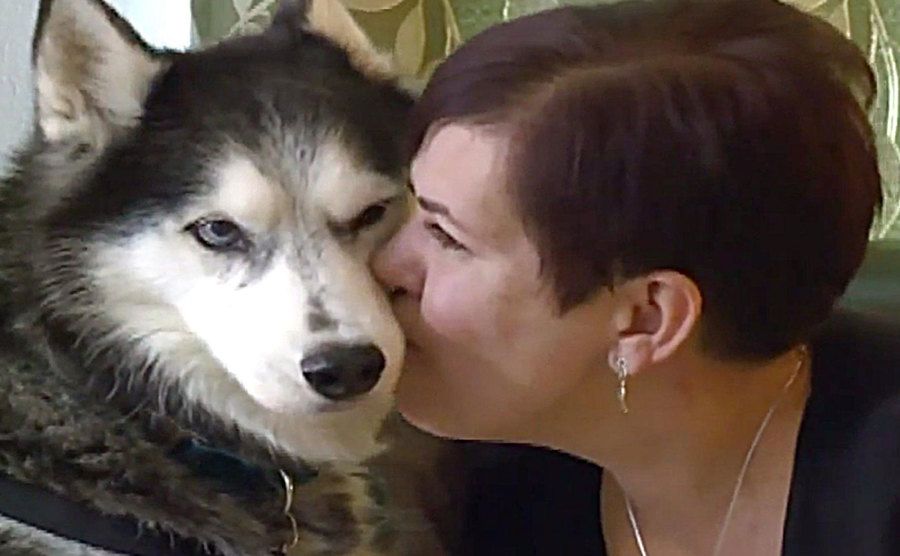
“Hey, you know, I have my own pet scan at home,’” Herfel quipped. “You’ve got to be humorous and laugh.” Nonetheless, she underwent radiation while she waited for chemotherapy in the fall. In the meantime, she went on two vacations with her husband of two years, a man she met while she was in remission.
Round Four and On…
While Herfel was receiving radiation treatments, Sierra refused to kiss her like she normally did and continued to hide from her. Herfel knew it meant something, but thought it was because Sierra could still smell the cancer and was uncomfortable about it.
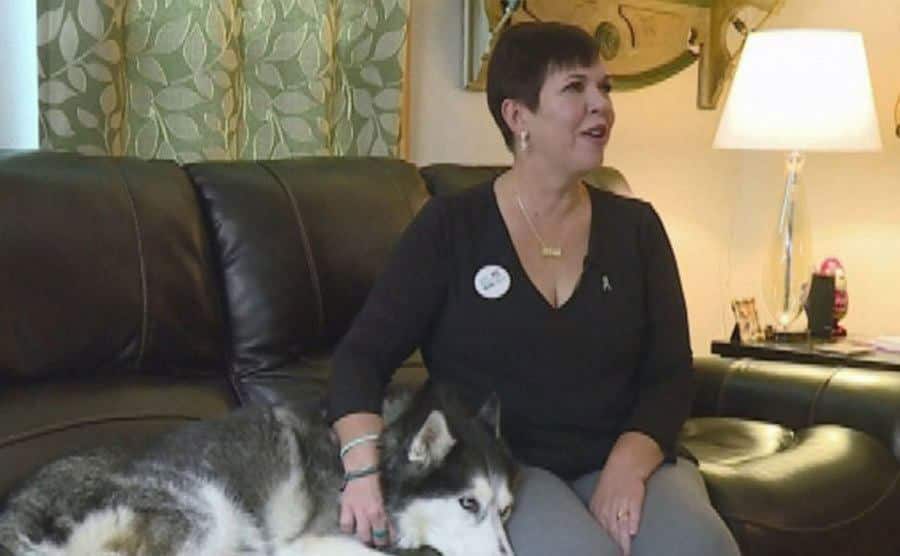
Then, Herfel started chemotherapy, and Sierra returned to her cuddly self. The dog’s positive reaction gave Herfel hope that the treatment must be working. “It is chillingly wonderful … I’m like, ‘OK it’s working,’” Herfel said. “She was that accurate over the course of this journey.”
Sierra Prolonged Her Life
Herfel’s cancer has come and gone for six years (stage 3 metastatic and recurrent to be specific) and she credits Sierra for giving her a longer life. “I just feel honored to be her spokesperson because I really believe she’s the star. She’s given me an opportunity at longevity.”
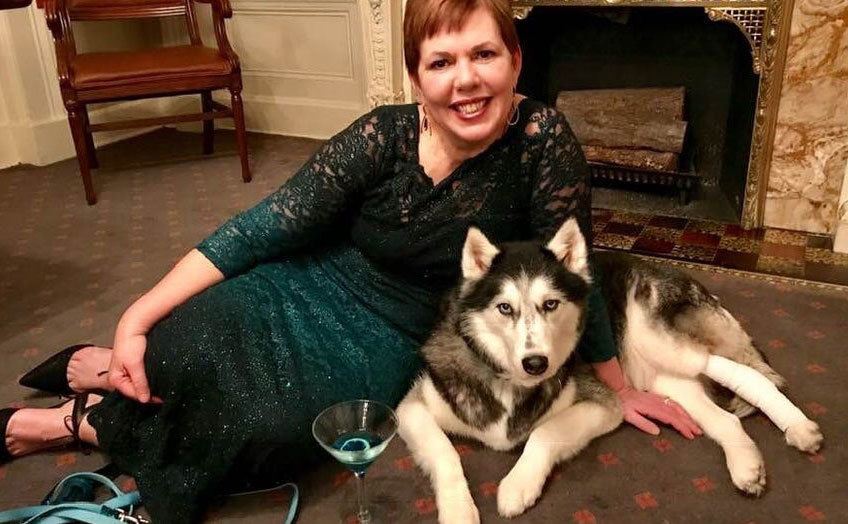
It’s quite amazing what dogs can do, apart from their normal awesome selves. They have been shown to help humans by successfully detecting cancer, malaria, Parkinson’s disease as well as other health issues.
Life-Saving Dogs
Humans have around 6 million olfactory receptors, whereas dogs have up to 300 million. Going back to Parkinson’s detection, there’s a non-profit organization called Pads for Parkinson’s in Washington state. There are 21 dogs of various sizes and breeds training to detect the disease.
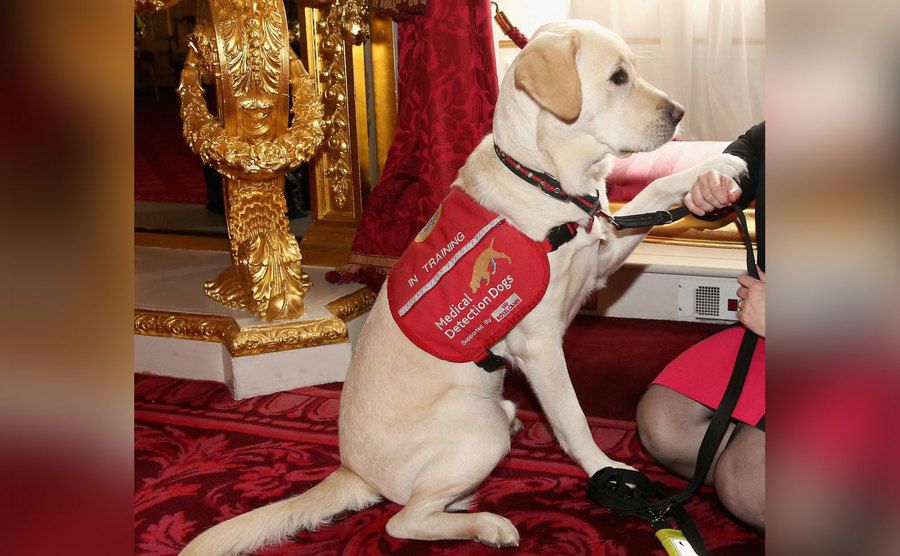
Maria Goodavage, author of Doctor Dogs: How Our Best Friends Are Becoming Our Best Medicine, watches as the dogs are trained with positive reinforcement techniques. The reward for a successful find is either food or a toy, depending on what the dog prefers.
